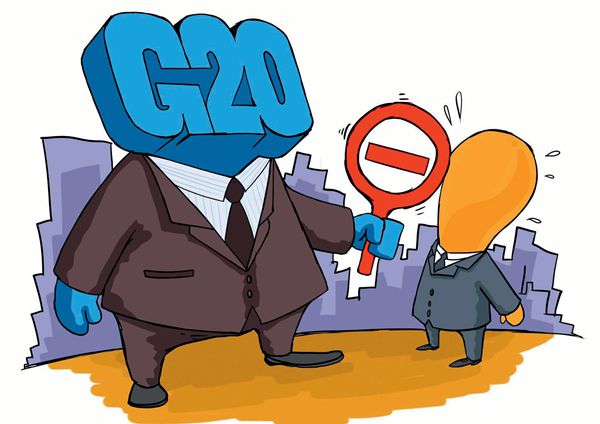Seeking Common Development in Asia-Pacific
China Today, January 23, 2017 Adjust font size:
Opening up beyond Promise
In complying with, performing, applying, and maintaining WTO rules, China has become a responsible WTO member. During the past 15 years, China has abided by the WTO’s general rules with regard to reduced tariffs, relaxed market access to service trade, and strengthened intellectual property protection, all of which have shown tangible achievements.
“In order to conform to WTO rules, China modified a great many domestic laws and regulations, including more than 2,000 articles of central government’s ministries and commissions, and as many as 90,000 local government articles,” Xue said.
China has gradually lowered its tariffs since 2002. According to the Ministry of Commerce, the country has kept to its promise regarding tax abatement on all products since 2010, average tariff having been reduced from 15.3 percent to 9.8 percent, and to 9.3 percent at the end of 2015. “Although higher than that of developed countries, it is lower than that levied by developing countries,” Xue said.
China, both on and ahead of schedule, has kept to its service trade promises, such as in banking, securities, and insurance. “Other WTO members undoubtedly hope that China will open its service trade further,” Xue said. “In fact, the extent of China’s opening of its service trade approaches that of developed countries, having exceeded the range China originally promised.”
Moreover, China’s intellectual property protection has been reinforced. “Both the WTO Director-General and its members highly commended China as exemplary in this respect,” Xue said.
Win-win Choice
“That China has changed radically since joining the WTO is known to all,” Xue said. China’s economic and trade environment has improved enormously. China has, therefore, intensified awareness of international rules and established open, transparent, and fair international economic and trade legislation and a market economic system based on WTO rules. It has thus hastened the pace of state-owned enterprise reform, invigorated private enterprises, and attracted foreign investment to China. The country has consequently become the world’s second largest economy and largest trading state.
Since joining the WTO, the Chinese government and enterprises have significantly strengthened their capability to apply legal rules and defense. “When involved in lawsuits in the past, we lacked translators, lawyer, or professionals,” Xue said. “But now China owns a large number of professionals, which has greatly enhanced the country’s capability as regards applying legal defense and rules.”
Xue quoted figures that underline China’s fruitful industrial achievements since entering the WTO. Among world’s top 500 industrial products, the outputs of 220 varieties from China rank a global first. Besides, China’s emerging industries have mushroomed, and high and new technological industries such as high-speed rail, aerospace, and computers, as well as mega structures, have forged ahead. China has become a core WTO member, whose industrial rules are acknowledged in the international community.

Avoid currency devaluation; resist trade protectionism.
China has moreover actively contributed Chinese wisdom to global economic governance, notably by proposing the Belt and Road Initiative, establishing the Asian Infrastructure Investment Bank and BRICS New Development Bank, and hosting the G20 Summit. “Obeying WTO rules brings benefits to both China and other members. China hence cherishes such rules,” Xue said.
Xue also expressed concern about anti-globalization. “The anti-globalization trend goes against world economic development. Reverting to trade protectionism and creating trade barriers will be to the detriment of the world division of labor and global value chain,” Xue said. “China advocates free trade to prevent the spread of trade protectionism worldwide. For China, reform and opening-up will continue to deepen, and the country will intensify its exchange and cooperation with other states, which will benefit both China and other WTO members.”
If the U.S and the EU plan to prolong Article 15 by passing domestic legislation, China could, according to WTO rules, accordingly amend its laws as counter measures. “However, this would inflict harm on both sides,” Xue said.
On December 12, 2016, the spokesperson for the Chinese Ministry of Commerce stated that China had launched dispute settlement procedures at the WTO by requesting consultations with the U.S. and the EU regarding the surrogate country approach.
As the EU is China’s major trade partner, Xue said, it is China’s hope that the EU will take the lead in acknowledging and abiding by the expiration of the clause, thereby setting an example to other WTO members.